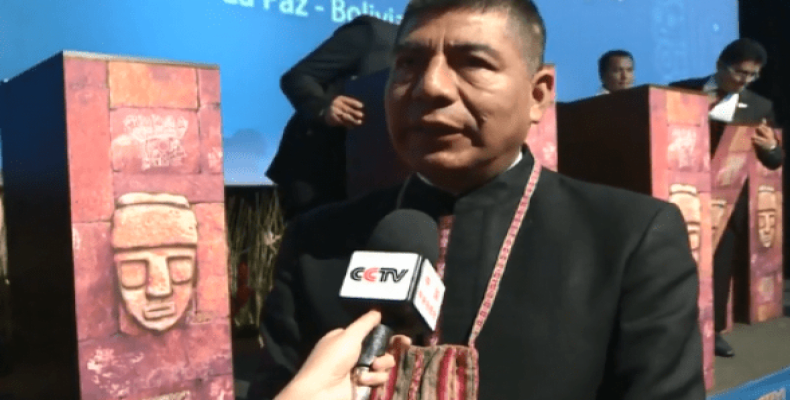La Paz, July 24 (RHC)-- Bolivia’s government says that the building where the Union of South American Nations (UNASUR) currently operates in Ecuador can only be taken back by the host nation if all member governments agree.
"According to Article 26 of the UNASUR Headquarters Agreement, the reversal of the General Secretariat's facilities must be a decision reached in consensus by all member states," said a statement released by Bolivia’s foreign minister, Fernando Huanacuni who also serves as the international entity’s pro tempore secretariat since last April. He’ll remain at this post until 2019.
Huanacuni said in a statement that "every effort is made to convene and adopt decisions that allow the agency to leave the current situation." And he added: "A call is made to States Parties to make decisions with a vision of future, far from the circumstances or contingencies (of today) and to watch over the true interests of communities in the construction of our South American identity," emphasized the Bolivian government.
Ecuadorean President Lenin Moreno announced earlier this month that the UNASUR building in Quito, donated to serve as the seat of the multinational organization by the previous Rafael Correa administration, will be handed over to an Indigenous University.
On July 5th, Moreno tweeted: "The UNASUR building was ceded to the countries that make it up. We are going to ask UNASUR to return the building so it can be better used. We are not opposed to integration, but it hasn't worked because of disrespect of others."
UNASUR, a project of regional economic and political integration championed by progressive leaders such as former Venezuelan President Hugo Chavez and former Ecuadorean President Rafael Correa, has faced challenges as a surge of right-wing governments have begun to oppose it. Just as Huanacuni was being sworn in, six member countries -- Argentina, Brazil, Colombia, Chile, Ecuador, Paraguay, and Peru -- announced they were abandoning the bloc.
Due to a lack of consensus and cooperation, an UNASUR secretary general has not been elected to replace Ernesto Samper, a former Colombian president, who left the office in 2017. President Evo Morales acknowledged last week that the South American project is going through a crisis due to the lack of agreements for the election of the new secretary.
"I’m sorry to say that UNASUR is in crisis. We will talk with our fellow presidents of South America," Evo Morales said during a recent visit to Paraguay.
UNASUR was created in 2008 by 12 South American countries with the purpose of promoting the political, social and cultural integration of its partners and working as an economic bloc. It is composed of Argentina, Bolivia, Brazil, Colombia, Chile, Ecuador, Guyana, Paraguay, Peru, Suriname, Uruguay, and Venezuela.
Bolivia says Ecuador can't take UNASUR building without consensus


